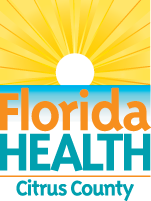Brazzaville, 3 March 2022 – Disruptions to essential health services due to the COVID-19 pandemic are being felt broadly. As the world marks International Women’s Day, a new World Health Organization (WHO) analysis finds that women’s health services are far from being fully restored, with 40% of African countries reporting disruptions to sexual, reproductive, maternal, newborn, child and adolescent health services.
The WHO Global Pulse Survey on Continuity of Essential Health Services during the COVID-19 pandemic carried out between November and December 2021 shows that the majority of the 36 African countries that provided full data reported up to 25% disruption of services. The extent of the disruption remained largely unchanged from the first quarter of 2021.
Another WHO survey in 11 African countries found that maternal deaths in health facilities in six of the 11 countries rose by 16% on average between February and May 2020 compared with the same period in 2019. The figure dropped slightly in 2021 to 11%. However, the estimate is likely to be far higher as maternal deaths tend to occur mostly at home rather than in health facilities. Data show that facility-based births reduced in 45% of countries between November and December 2021 compared with the pre-pandemic period.
“Two years on, the COVID-19 burden still weighs heavily on women. Africa’s mothers and daughters are struggling to access the health care they need. The pandemic’s disruptive force will be felt by women for many years to come,” said Dr Matshidiso Moeti, WHO Regional Director for Africa. “Countries must look beyond short-term measures to restore services to pre-pandemic levels and make major investments for stronger systems capable of withstanding health emergencies while ensuring continuity of key services.”
During the pandemic, women and girls are facing a rising risk of sexual violence due to lockdowns, economic uncertainties, decrease in access to key support and health services, and increase in stress in households. Globally, from the latest analysis done in 2021, WHO estimates that 245 million women and girls aged 15 years and above are subjected annually to sexual and/or physical violence perpetrated by an intimate partner. Unfortunately, in Africa, due to the pandemic, services to women who have experienced sexual violence declined in 56% of countries between November and December 2021 compared with the period before the pandemic.
The disruptions also affected the uptake of essential reproductive health supplies. Between June and September 2021 contraceptive use fell in 48% of countries, according to a rapid WHO survey in 21 African countries. Teenage pregnancies also rose in some countries. A 2021 report by the British Medical Journal found that adolescent secondary school girls who were out of school for six months due to the COVID-19 lockdown in Kenya were twice as likely to become pregnant and three times as likely to drop out of school compared with those graduating just prior to the pandemic. In South Africa, a study by the Medical Research Council in five provinces showed that teenage pregnancies have increased by 60% since the start of the pandemic.
Beyond the health impacts, COVID-19 is also inflicting deep economic damage on women and girls. The pandemic is poised to push more women and girls into extreme poverty. Poverty rates rose from 11.7% in 2019 to 12.5% in 2021 and it may take until 2030 to revert to pre-pandemic levels, according to a report by the International Monetary Fund, the UN Development Programme and the UN Women.
Globally in 2021, 247 million women aged 15 and above were projected to live on less than US$ 1.90 per day due the economic impact of COVID-19, with an estimated 53% (132milion) of them from sub-Saharan Africa.
The pandemic has also worsened existing gender inequities in key spheres of life and development. Even though women constitute 70% of the health and social workers in Africa and are on the frontlines of COVID-19 response, few of them are in top pandemic management positions, according to the UN Development Programme and the UN Women Global Gender Response Tracker. In the African region, 85% of national COVID-19 task forces are led by men and only 15% by women, and the overall participation by women is only 30%.
Dr Moeti spoke during a virtual press conference today. She was joined by Dr Francine Ntoumi, President and Director-General, Congolese Foundation for Medical Research, and Dr Eleanor Nwadinobi, President, Medical Women’s International Association.
Also on hand from the WHO Regional Office for Africa to respond to questions were Dr Adelheid Onyango, Director Universal Health Coverage/Healthier Populations, Dr Richard Mihigo, Coordinator, Immunization and Vaccines Development Programme, Dr Thierno Balde, Regional COVID-19 Incident Manager, Dr Leopold Ouedraogo, Regional Adviser for Sexual and Reproductive Health.
(END)
Please click the link below to access statements, audio files and soundbites as they become available: https://drive.google.com/drive/folders/1u4t3hCN63_q3Q7OdIPn7FY9_G8tIRcUm
Media contacts:
Collins Boakye-Agyemang
Communications Officer
WHO Regional Office for Africa
boakyeagyemangc@who.int
Tel: + 242 06 520 65 65
Meenakshi Dalal
Communications Consultant
dalalm@who.int
Tel: + 1 682 812 2306 (WhatsApp)
Saya Oka
Communications Manager
WHO Regional Office for Africa
okas@who.int
Tel: +242 065 081 009








